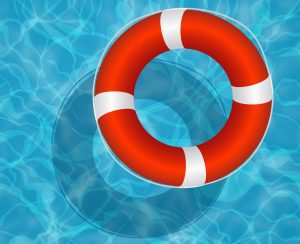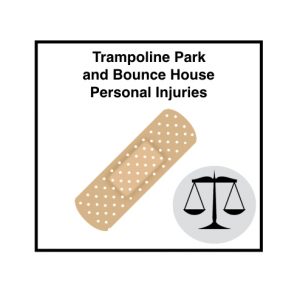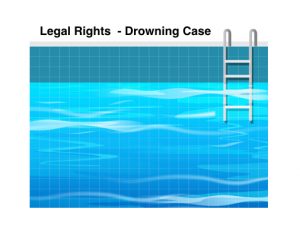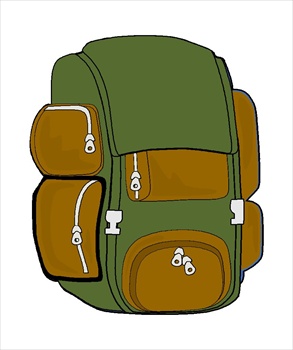 During the summer months, swimming is a wonderful activity for children. It can also be a dangerous one. According to the Center for Disease Control and Prevention, drowning is listed as the top cause of death for children ages one to four years old. For older children ranging in age from five to nineteen years old, drowning is listed as the third leading cause of death.
During the summer months, swimming is a wonderful activity for children. It can also be a dangerous one. According to the Center for Disease Control and Prevention, drowning is listed as the top cause of death for children ages one to four years old. For older children ranging in age from five to nineteen years old, drowning is listed as the third leading cause of death.
There are several precautions a parent can take to protect their children from drowning. Children near open bodies of water, like lakes or beaches, should wear life vests. However, of the almost one thousand child drownings each year, the majority of these occur in home backyard pools. First, there should always be a supervising adult near swimming children. Many parents and homeowners decide it is best to construct a fence around their pool in order to physically separate young children from the water, and studies show that “four-sided fencing with a locking gate… prevents more than half of swimming pool deaths in children.” The CDC recommends a fence at least four feet high. In the event of a child falling into a pool or other body of water, parents should take care to learn CPR.
One preventative measure which has garnered a bit of attention in the last few years is youth swimming lessons—starting as young as a year old. The reason for this early start is twofold—first, infants can drown in bodies of water much smaller than a swimming pool, like a bathtub or even a bucket of water, and, second, the lessons prepare young children in case they accidentally fall into a swimming pool. The Consumer Product Safety Commission says almost seventy percent of drowning victims under the age of five were not expected to be in the water. For this reason, youth swimming lessons are focused on familiarization with water, being able to breach the surface and tread water or looking for floatation devices. The American Academy of Pediatrics recommends swim lessons for children between the years of one and four, and the USA Swimming Foundation reports that lessons can reduce the risk of drowning by almost ninety percent. Parents should make sure that, when enrolling their children in a swimming course, the teachers are properly trained and that there are lifeguards on duty.
 Child Injury Lawyer Blog
Child Injury Lawyer Blog






 Summer camp is usually a wonderful time and adventure for children. At times, however, a summer camp can be the site and later memory of a serious personal injury sustained by a child. As a Child Injury Lawyer, I am often asked if a summer camp, school, or day care center is liable or responsible for the bills and damages when a child fractures or breaks a bone. Like many broad questions, the answer is “it depends”. A summer camp may be liable or responsible for compensation to the injured child if the parent, by and through the attorney, can prove the following elements:
Summer camp is usually a wonderful time and adventure for children. At times, however, a summer camp can be the site and later memory of a serious personal injury sustained by a child. As a Child Injury Lawyer, I am often asked if a summer camp, school, or day care center is liable or responsible for the bills and damages when a child fractures or breaks a bone. Like many broad questions, the answer is “it depends”. A summer camp may be liable or responsible for compensation to the injured child if the parent, by and through the attorney, can prove the following elements: Every year, millions of children attend some form of summer camp. Some camps are local while others are overnight or sleep away camps. According to the American Camp Association (ACA), it is estimated that there are over 10 million children who attend one of 120,000 camps nationwide.
Every year, millions of children attend some form of summer camp. Some camps are local while others are overnight or sleep away camps. According to the American Camp Association (ACA), it is estimated that there are over 10 million children who attend one of 120,000 camps nationwide. Linda Favazza, a day care center owner in Methuen, Massachusetts faced criminal charges due to the death of a child and having an unlicensed facility.
Linda Favazza, a day care center owner in Methuen, Massachusetts faced criminal charges due to the death of a child and having an unlicensed facility.